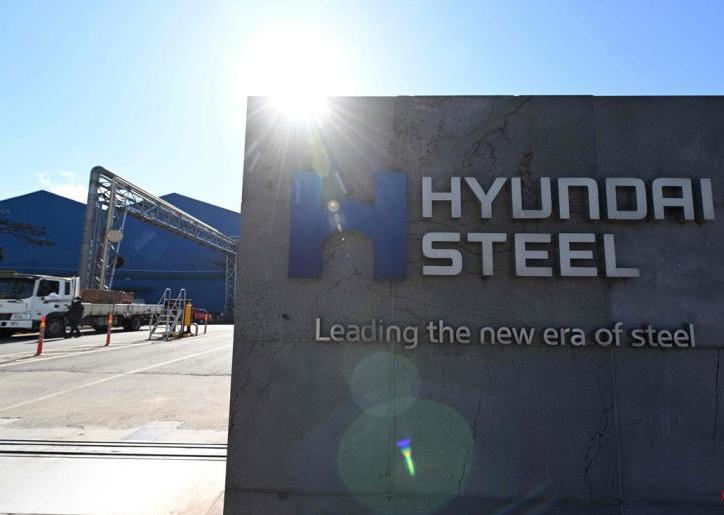
U.S. President Donald Trump has launched a "tariff war," and countries have launched a diplomatic offensive to win exemptions from tariffs. However, due to the suspension of South Korean President Yoon Seok-yoon's declaration of martial law, the summit diplomacy has been completely stalled, and it is not only difficult to negotiate directly with Trump, but also to lose the initiative in the global tariff exemption competition, causing widespread concern in South Korean society.
Trump signed an executive order on February 10 to impose a 25% tariff on all imported steel and aluminum. Japan, the European Union, the United Kingdom and Taiwan moved quickly to negotiate with the United States. Trump even hinted that after speaking with the Australian leader, he may grant waivers, leaving countries racing to accelerate the pace of negotiations.
By contrast, Yoon's suspension after declaring martial law in December last year has prolonged a power vacuum that has stalled South Korea's summit diplomacy. Trump prefers direct negotiations between the heads of state, but South Korea is difficult to negotiate effectively due to internal political turmoil, making the prospect of tariffs unclear.
It is known that South Korea's acting President Choi Sang-moo has failed to hold a summit call since Trump took office, limiting diplomatic communication.
"Concerns over the change of U.S. tariff policy are becoming reality, and we will push forward negotiations with the U.S. side," Minister Choi said at a forum on foreign economic issues on February 11.
Ji Man-soo, a senior researcher at the Korea Institute of Finance, pointed out that the need for tariff exemption with the United States to carry out a "package deal", but the domestic situation in South Korea is complex, difficult to reach a consensus, making negotiations more difficult.
A South Korean government official said, We are doing our best to advance our strategy toward the U.S. except for summit diplomacy, but the limitations of the acting president system do exist.
Against this backdrop, South Korean Foreign Minister Cho Tae-yeol and US Secretary of State Marco Rubio held talks on the sidelines of the Munich Security Conference in Germany on Saturday (February 15), the first high-level dialogue between South Korea and the US since the inauguration of the new Trump administration.
According to the South Korean Foreign Ministry, the foreign ministers of South Korea and the United States discussed issues such as Trump's proposal to impose tariffs on countries with trade surpluses with the United States. Cho Tae-yeol stressed at the meeting that he hoped to seek a mutually beneficial solution through close consultation, and Rubio said he would convey South Korea's views to relevant departments.
South Korea ranks eighth among countries with a trade surplus with the US, with a surplus of US $55.7 billion (S $74.6 billion) in 2024.
Although the meeting between the two foreign ministers marks the resumption of high-level communication between South Korea and the United States, public opinion believes that because tariff affairs are mainly responsible for the trade department, it is difficult to reach a specific agreement at the diplomatic level, and South Korea still needs to strengthen negotiations at other levels.
At the same time, the United States announced additional tariffs on imported cars from April 2, and South Korea's auto industry bore the brunt of the situation.
In 2024, South Korea exported 1.53 million vehicles to the United States, totalling 53 trillion won (S $49.2 billion), while the United States imported only 50,000 domestic vehicles, resulting in a trade deficit of 50 trillion won, making South Korea the focus of pressure from the United States.
In addition, the United States plans to review South Korea's emissions restrictions and value-added tax policies, and may set up non-tariff barriers to further increase export barriers.
Cho Chul, senior research fellow at the Korea Institute for Industrial Research, said, The profit margin of the auto industry is only 7 to 8 percent. If tariffs exceed 10 percent, companies will suffer huge losses, and the Korea-U.S. free trade Agreement (FTA) will be useless.
Now that Trump is back in office, he is more sophisticated than ever and promotes the "America first" policy more firmly and decisively, but South Korea has missed the diplomatic opportunity due to political turmoil, and is facing domestic economic challenges and external trade pressure. South Korea's current situation is like a boat stalled by engine failure in the wind and waves, and the road ahead is full of uncertainty.

報告顯示,中國電力投資加速增長,預計2024年電網基建投資將超過5300億元。
近日,市場迎來了一則引人注目的消息:工業巨頭3M公司(MMM.N)在本周五公布了其季度業績報告,隨後股價飆升至近兩年來的
最近,外媒給OpenAI算了筆賬,今年可能要血虧50億美元。
近日,巴黎奧運會和世界鐵人三項協會聯合發布了一項重大決定,宣布因塞納河水質污染問題,原定於近期進行的奧運會鐵人三項首次下
當地時間7月18日,法國巴黎發生了一起令人震驚的持刀襲警事件。
近期,一則重大消息在國際舞臺上引起軒然大波,馬來西亞宣布加入金磚國家。
調查發現,互聯網和智能手機的使用幹擾了韓國近五分之一學生的生活。